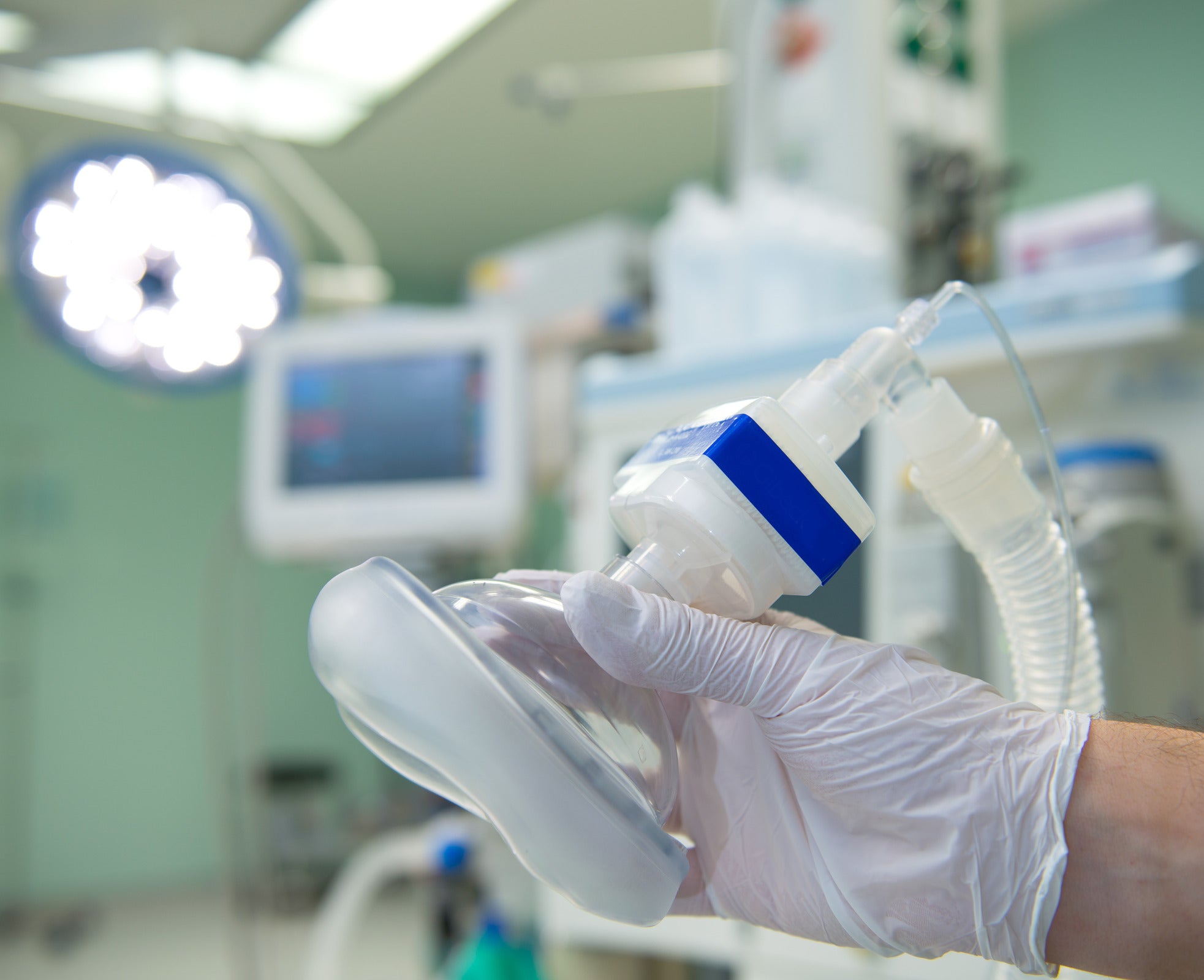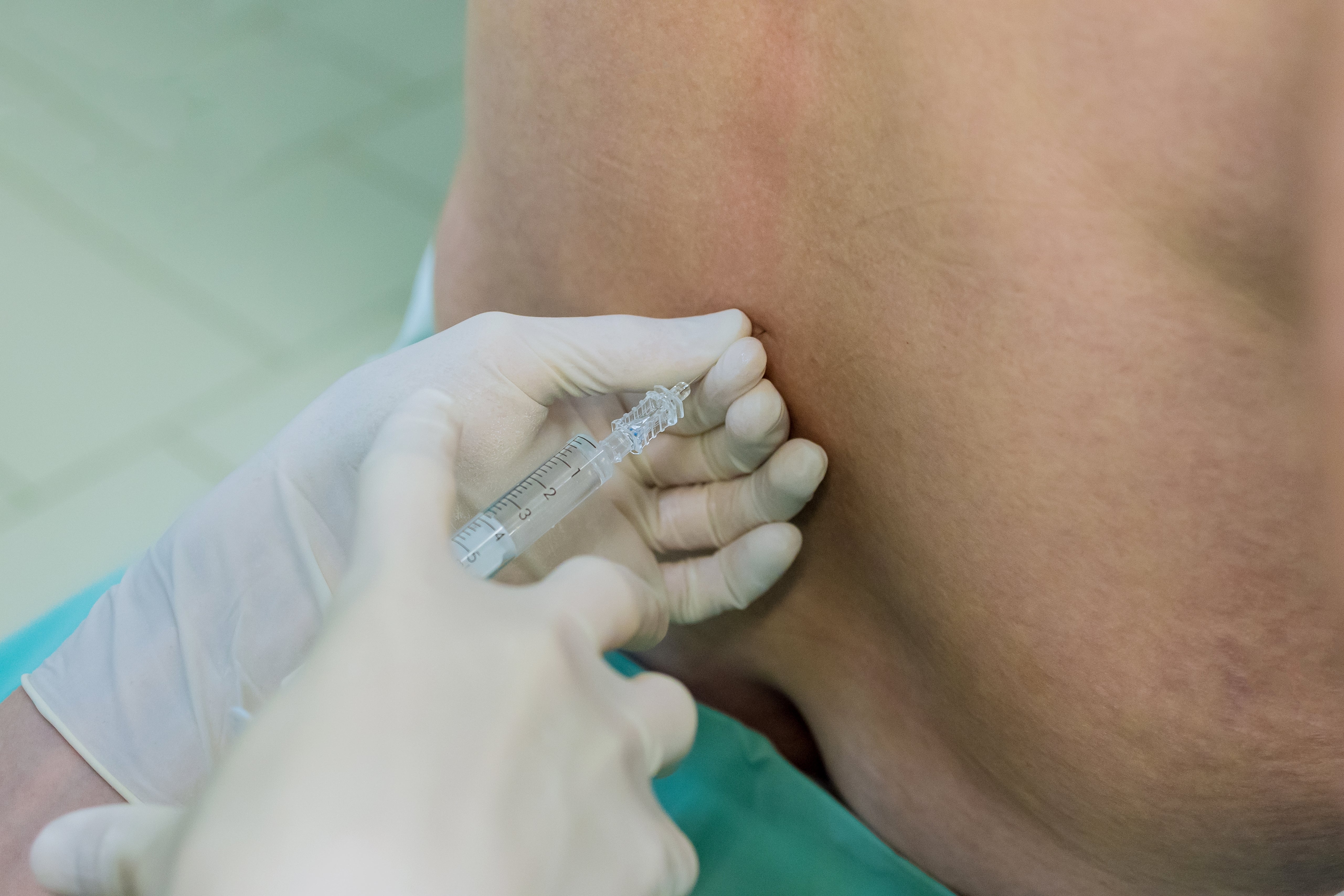You will gradually wake up after the anesthetist stops the anesthetic. A recovery room is the first place you'll be transferred before the award. Depending on your circumstances, your hospital stay will usually be a few hours to a few days.
It's just as important as the procedure itself. Without it, patients risk complications, adverse reactions, and even death.
In this blog post, we'll explore the techniques used to wake you up from anesthesia, the factors influencing your recovery, and the importance of proper anesthesia recovery for your overall health.
How Do They Wake You Up from Anesthesia: 4 Specific Techniques

Anesthesia is vital for surgeries, ensuring patient comfort and safety. The awakening process requires medical expertise and individualized care. Here, we explore techniques for a smooth transition from unconsciousness to consciousness.
Traditional Anesthesia Reversal Medications
During anesthesia, the body's normal functions are temporarily altered. The awakening process starts with administering medication designed to reverse these effects. Traditional anesthesia reversal medications fall into two primary categories commonly used.
Neuromuscular Blockers Antagonists:
- Neostigmine: A cholinesterase inhibitor that counteracts the effects of neuromuscular blockers, promoting muscle strength and restoring breathing patterns.
- Sugammadex: A selective relaxant-binding agent that rapidly reverses certain neuromuscular blockers' effects, restoring muscle function.
Narcotic Antagonists:
- Naloxone: An opioid receptor antagonist used to reverse the sedative and respiratory depressive effects of narcotics, hastening the return to wakefulness.
Alternative Approaches to Anesthesia Recovery
With realizing the importance of personalized methods for anesthesia recovery, alternative techniques have emerged as prominent solutions. These techniques prioritize optimizing the natural awakening process and mitigating post-anesthesia complications.
Natural Wake-Up Techniques:
- Oxygen Administration: Supplemental oxygen is administered to promote increased oxygen saturation levels by accelerating the removal of anesthetic gases.
- Temperature Regulation: The monitoring and maintaining body temperature will enable a controlled and gradual emergence from anesthesia.
- Gradual Reduction of Anesthetic Agents: Adjusting the administration of anesthesia agents to allow for a smoother and gentler transition to consciousness.
Early Extubation Procedures:
- Judicious Extubation: Timely removal of the breathing tube (endotracheal tube) once spontaneous breathing is adequately restored.
- Laryngeal Mask Airway (LMA) Extubation: Switching from endotracheal intubation to a less invasive LMA reduces irritation and supports quicker recovery.

Anesthesia Wake-Up: The Factors Affecting
Anesthesia is crucial for safe surgery, and the emergence from this state is equally important. Several factors influence how a person wakes up from anesthesia, shedding light on the recovery process and emphasizing the meticulous care provided by medical professionals for patients' well-being.
The Type of Anesthesia Used in the Procedure
The choice of anesthesia employed during a surgical procedure plays a pivotal role in determining the awakening process. Different types of anesthesia induce varying degrees of sedation, pain relief, and muscle relaxation. These types include:
- General Anesthesia: A state of deep unconsciousness, typically achieved through administering intravenous drugs or inhaled gases, rendering the patient entirely unaware and unresponsive during the procedure.
- Regional Anesthesia: Involves numbing a specific body region, such as epidural or spinal anesthesia, allowing for surgical procedures while the patient remains awake and conscious.
- Local Anesthesia: Limited to a small area, local anesthesia is often utilized for minor procedures, with the patient fully awake and alert.
The Length and Complexity of the Surgery

The duration and intricacy of the surgical procedure are integral in predicting the recovery timeline from anesthesia. Longer and more intricate surgeries necessitate prolonged anesthesia, which might influence the wake-up process. Factors to consider include:
- Surgical Complexity: Procedures with extensive tissue manipulation or involving multiple stages may require more profound anesthesia, potentially prolonging the awakening phase.
- Anesthetic Dosage: The amount of anesthesia administered is tailored to the procedure's length, influencing the time it takes for the body to metabolize and eliminate the drugs.
Patient-Specific Factors in Anesthesia Recovery
The unique attributes of each patient contribute significantly to how swiftly and smoothly they emerge from anesthesia. Medical professionals meticulously assess these factors before and during the procedure to ensure optimal recovery. Patient-specific elements encompass:
- Age and Health Status: The patient's age and overall health condition play a role in anesthesia recovery. Younger individuals and those in better health might metabolize the anesthesia more efficiently.
- Medication and Pre-existing Conditions: Certain drugs and medical conditions can impact the metabolism and response to anesthesia. Communicating a comprehensive medical history is crucial to mitigate potential complications.
- Body Weight and Metabolism: Body composition and metabolism influence the body processes anesthesia. Higher body weight might require adjusted dosages to achieve the desired soothing effect.
Wake You Up from Anesthesia: Post-Anesthesia Care
After undergoing anesthesia and a surgical procedure, the journey toward a complete recovery continues with diligent post-anesthesia care. This phase is critical for ensuring not only the physical well-being of the patient but also their comfort and overall experience. A comprehensive approach to post-anesthesia care involves several key aspects that contribute to a successful recovery.
Post-operative Monitoring
In the immediate aftermath of surgery and anesthesia, vigilant monitoring and attentive observation are paramount. Medical professionals closely assess the patient's vital signs, response to anesthesia, and overall condition. This vigilant monitoring serves to identify and address any potential complications swiftly. Key elements of this phase include:
- Vital Sign Monitoring: Continual tracking of vital signs such as heart rate, blood pressure, respiratory rate, and oxygen saturation ensures early detection of any abnormalities.
- Recovery Room Observation: Patients are closely monitored in a specialized recovery room, where healthcare providers can promptly respond to emergencies.
- Assessment of Consciousness: Evaluating the patient's consciousness and cognitive function level helps gauge their progress in waking up from anesthesia.
Anesthesia and Pain Management

Effective pain management is crucial in the post-anesthesia recovery phase, as surgical procedures can lead to varying levels of discomfort. A personalized pain management plan ensures a smoother recovery and enhances the patient's overall well-being. Critical components of pain management include:
- Medication Administration: Prescription of appropriate pain-relieving medications tailored to the patient's needs and pain threshold.
- Patient Education: Clear communication regarding pain management techniques, medication schedules, and potential side effects empowers patients to participate in their recovery actively.
- Alternative Pain Relief Methods: Non-pharmacological approaches such as relaxation techniques, guided imagery, and positioning adjustments can complement medication-based pain management.
Recovery Nutrition and Hydration
Adequate nutrition and hydration are vital components of post-anesthesia recovery, as they facilitate healing, boost the immune system, and aid in eliminating anesthesia from the body. Nourishing the body during this phase supports a swift and effective recovery. Critical considerations for proper nutrition and hydration include:
- Hydration Balance: Encouraging patients to maintain adequate fluid intake helps prevent dehydration, particularly as anesthesia can temporarily impact thirst mechanisms.
- Nutrient-Rich Diet: Providing well-balanced meals rich in vitamins, minerals, and protein promotes tissue repair and overall recovery.
- Dietary Restrictions: Addressing any dietary restrictions or considerations based on the patient's medical history or surgical procedure is essential to prevent discomfort or complications.
Wake up from anesthesia: Challenges and Complications
While anesthesia is crucial to modern medical procedures, awakening from its effects can sometimes present challenges and complications. Understanding these potential issues is essential to ensure a safe and smooth transition from sedation to full consciousness.

Common Side-effects and Adverse Reactions
The awakening process from anesthesia can involve a range of side effects and adverse reactions, which, while often temporary, may cause discomfort or concern for patients. Being aware of these common occurrences helps manage expectations and alleviate unnecessary worry. Some typical side-effects and reactions include:
- Nausea and Vomiting: Anesthesia can occasionally lead to feelings of nausea or even vomiting upon awakening. This is typically managed with medication and usually subsides as the effects of anesthesia wear off.
- Confusion or Disorientation: Patients might experience temporary confusion, disorientation, or memory lapses upon waking up. This is a normal response to anesthesia and usually resolves as the brain clears the soothing effects.
- Sore Throat or Hoarseness: Breathing tubes used during surgery can sometimes cause a sore throat or hoarseness upon waking. This discomfort is usually temporary.
Managing Emergencies in Anesthesia Recovery

While rare, emergencies and critical situations can arise during anesthesia recovery. Medical professionals are trained to handle such circumstances swiftly and effectively, ensuring patient safety and well-being. Key aspects of managing emergencies during anesthesia recovery include:
- Continuous Monitoring: Vigilant monitoring of vital signs and patient responsiveness allows medical teams to identify and address potential issues promptly.
- Emergency Protocols: Healthcare providers are well-versed in emergency protocols and are equipped to handle respiratory distress, allergic reactions, or cardiac events.
- Advanced Life Support: In more severe cases, medical teams are trained to administer advanced life-support measures, including airway management, cardiopulmonary resuscitation (CPR), and the administration of emergency medications.
Long-term Effects of Poor Anesthesia Recovery
While most patients recover smoothly from anesthesia, a poor recovery experience can have potential long-term effects that warrant consideration. It is crucial to address any concerns promptly to minimize the risk of lasting complications. Long-term effects of inadequate anesthesia recovery may include:
- Cognitive Issues: Prolonged confusion or disorientation during recovery might lead to lingering cognitive difficulties.
- Psychological Impact: A traumatic recovery experience can contribute to some patients' anxiety or post-traumatic stress reactions.
- Delayed Healing:Poor recovery might impede the body's ability to heal correctly, potentially prolonging the overall recovery period.
Conclusion
The process of waking up from anesthesia does not involve waiting for the effects to wear off. A safe and successful recovery depends on a variety of techniques and factors. Everything must be carefully considered to ensure a successful procedure, from the type of anesthesia used to your health status.
We aim to minimize the risks and complications associated with anesthesia during the post-operative period and facilitate a smooth and speedy recovery. You can rest assured that the professionals will wake you safely and effectively next time you drift into a drugged slumber.










![13 Top Anesthesia Side Effects & Potential Risks [covered]](http://drnumb.com/cdn/shop/articles/shutterstock_1781191736_1.jpg?v=1693284851)

